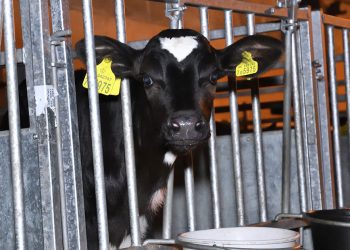If you’re looking to enter the food service industry without the commitment of a fixed location, a food truck could be the perfect solution. This guide on how to start a food truck business is designed to assist aspiring food truck owners in launching their ventures.
How to Start a Food Truck Business in Simple Steps
Every food truck may look and operate a bit differently. Here are some common steps you can use to get started.
Research Food Trucks Locally
To succeed as a food truck owner, it is essential to understand your competition. Start by identifying popular cuisines and gaps in the market. Research other food trucks in your area to discover a unique niche, and take note of the hot spots and trends within your local food truck scene. Attending local food truck events can also provide valuable insights. This knowledge will be crucial as you learn how to start a food truck business.
Choose a Niche and Know Your Target Market
Food truck customers typically enjoy unique menu offerings. To gain insight into customer preferences, analyze demographic data. Consider introducing distinctive elements that differentiate your business, such as creative toppings for traditional favorites like burgers and tacos. Create a menu that reflects local tastes and accommodates dietary preferences.
Name and Brand Your Business
A catchy name and brand will make your business more memorable. Ensure your brand reflects the culinary experience you offer. Choose consistent design elements that are easy to read and communicate a style that appeals to your target customers. Your brand should align well with the vibe of your food truck.
A catchy name and brand will make your business more memorable. Choose consistent design elements that are easy to read and communicate a style that appeals to your target customers.
Write a Food Truck Business Plan
Every business needs a plan; here are some things to include in your food truck business plan:
- Market analysis: Look at other food truck owners in your area and consider demand from local customers.
- Product and service list: What types of food will you offer? Consider ingredient cost and what you’ll charge for items; include any extra revenue streams like private catering.
- Marketing strategies: How will you market your business? And what expenses might come with your strategy?
- Financial projections: Based on your market and price list, what can you expect to earn? How does that compare to your projected expenses?
Look into Small Business Grants
Food truck owners may benefit from extra funds. Research local business development programs offering financial assistance. Look for available grants for new businesses in your area for extra support. Explore industry-specific grants, particularly those focused on culinary enterprises.
Develop a Menu and Set Your Prices
Within your niche, create a short list of items you can make with limited ingredients. Incorporate seasonal specialties to attract customers. Price items based on demand and costs. Consider the local economic landscape to set competitive and profitable prices.
Secure a Truck
You need a truck that’s large enough to prepare and serve food. Assess the layout for efficient food preparation and customer service. So, you have to find where to buy a food truck. You can find old vans or trucks in local classified ads and have them furbished with equipment. Evaluate the condition and potential modifications needed. Or buy an existing food truck from a business broker. You can also seek expert advice to make a cost-effective decision.
Read More: food truck ideas
Form a Legal Entity and Register Your Business
All businesses need a legal entity; here are some for food truck operators to consider:
- Sole proprietor: This can work for those who operate individually, but it offers no liability protection.
- LLC: Offers liability and low startup costs; this is quite common for food truck operations.
- Corporation: This offers liability protection and a different tax structure, but it can be more complicated and costly to start.
Open a Business Bank Account
Keep your business and personal assets separate to simplify bookkeeping and build credit. Consider business credit cards for monthly purchases.
Get Business Insurance
Insurance can protect your assets if your business experiences any losses. Here are some common types of mobile food businesses.
- General liability
- Commercial auto
- Workers comp
- Property coverage
Get the Necessary Food Truck Equipment
The exact equipment needed depends on your niche and how much food you work with, but here are some common categories:
- Cooking equipment like a griddle or fryers
- Refrigeration equipment
- Shelves or cabinets to store ingredients
- Food containers
- Cleaning supplies
Get a POS System
A point-of-sale system helps successful food trucks manage transactions. Common options include TouchBistro, Toast, and Square.
Source Your Ingredients
Find wholesale suppliers for all the items you need to create your menu. These are often the same food industry suppliers that work with restaurants with brick-and-mortar locations.
Apply for Permits and Food Truck Licenses
Food trucks often need business licenses, vehicle registration, commercial driver’s licenses, parking permits for specific locations, and mobile food service permits. Check with your local health department to see what paperwork is required.
Prepare for Health Inspectors to Visit
Local officials will also likely visit to check for cleanliness and food safety.
Sort Out Your Taxes
Taxes vary by state. But many food truck owners must pay:
- Business income taxes
- Payroll taxes
- State sales taxes
Create a Website and Market Your Business
Customers often research their local food truck community online. So, create an online presence with your menu and social profiles to update your locations.
Decide Where to Park
Food truck vendors should seek out spots with lots of customers, like high foot traffic areas and special events. Make sure parking spots are approved through your local motor vehicle department.
Employ Staff
You might require a small team to prepare food and serve customers. Before conducting interviews and training, be sure to apply for an NIE number and fulfill your state’s other requirements.
Maintain Your Truck
Your food truck needs oil changes, tire rotations, and fluid flushes like any vehicle.
Market Your Business and Expand
To attract more customers, promote your brand through social media, update your location on food truck finder apps, and participate in popular food truck festivals. As you gain popularity, consider creating a franchise to extend your delicious offerings to new locations.
Why You Should be Part of the Food Truck Industry
Food trucks offer plenty of exciting opportunities for entrepreneurs. Here are some benefits of choosing this niche:
- Location independence: Your truck can go wherever potential customers are. If there’s a big event or area with lots of foot traffic on any given night, you can set up there to reach more people.
- Low startup costs: You don’t need a dedicated location or a huge team to run a food truck. So it can be easier to break into the industry.
- Built-in advertising: When you set up at an event or drive across town, your truck gets seen. If you have a catchy logo or design, this automatically helps you build brand recognition without extra advertising.
- Multiple income streams: Food trucks don’t have to only offer food at festivals and high-traffic areas. You can also offer catering to diversify your income streams.
How Much Does it Cost to Start a Food Truck Business?
The expenses associated with how to start a food truck business can differ greatly depending on various factors. In the United States, the typical investment ranges from $28,000 to $180,000, with an average cost of about $100,000. This fluctuation in expenses is affected by elements such as location, local licensing regulations, kitchen configuration, and cooking equipment. Additionally, the type of truck you select significantly impacts the total cost. Options include:
- New Truck with a New Kitchen Setup: An all-new setup can cost between $120,000 to $200,000. This option is free from maintenance or hidden costs at the beginning.
- Used Truck with a New Kitchen Setup: Opting for this setup could range from $80,000 to $115,000. While the initial cost is lower, a used truck may require more maintenance and repairs over time.
- Used Truck with a Used Kitchen Setup: This option is the most budget-friendly, with expenses between $55,000 and $90,000. Nevertheless, it carries the potential for increased maintenance and repair costs.
- Renting a Food Truck: If you’re starting on a tight budget, renting a food truck is a viable option, generally costing $2,000 to $4,000 a month.
Additional expenses to consider encompass kitchen equipment and supplies (estimated between $10,000 and $25,000), initial inventory and food costs (approximately $1,000 to $3,000), marketing and advertising expenses, professional service fees (such as legal and accounting), employee salaries and benefits, maintenance and fuel costs, commissary or storage fees, as well as point-of-sale system and payment processing fees.
Moreover, the development of mobile apps for improved branding and customer engagement can begin at $5,000, while more complex applications may exceed $20,000. Additionally, accounting software such as QuickBooks or Xero can incur monthly fees ranging from $20 to $60. Effective inventory management is essential and includes costs for food ingredients, disposable supplies, cleaning supplies, fuel, propane, menu specials, and beverages. Furthermore, your marketing and branding initiatives can considerably influence your startup expenses, with costs associated with website development, advertising, branding materials, promotions, events, and food truck wrapping.
Securing the required licenses and permits is essential for operating legally. This includes obtaining food service licenses, mobile food vendor permits, health department permits, fire department permits, parking permits, business licenses, sales tax permits, and commissary agreements. Additionally, utility costs like electricity, water, and waste disposal contribute to the overall operational expenses.
Finally, consider the cost of labor and talent required to run the food truck, including chefs, servers, and cleaners. Overall, a detailed budget and a robust business plan are crucial for a successful launch and sustainable operation of a food truck business
Is Owning a Food Truck Profitable?
Yes, starting your own food truck can be profitable. Many food trucks make over $100,000 per year. Once startup costs and ongoing expenses are factored in, an annual profit of about $50,000 is usually possible. However, the exact amount you earn depends on your food truck concept, operating hours, menu, and locations. You can also look into food truck franchise options to cut your initial startup cost.
Image: Depositphotos, Envato Elements

























